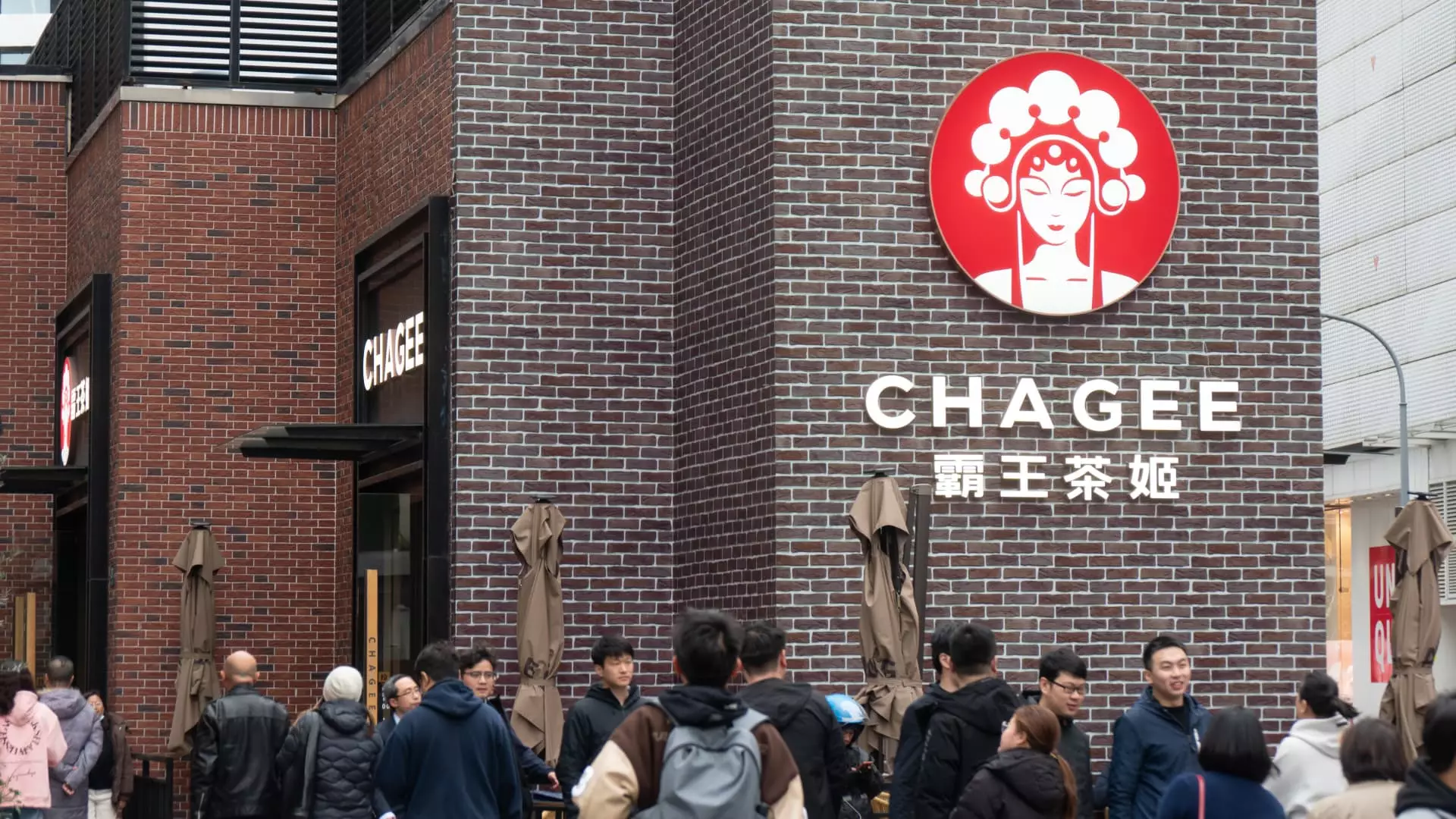Chagee, a burgeoning bubble tea chain from China, has recently announced its intention to file for an Initial Public Offering (IPO) on the Nasdaq, sporting the ticker “CHA.” The company aims to expand its operations in the U.S., launching its first store in the upscale Westfield Century City Mall in Los Angeles later this spring. On the surface, this may appear to be an exciting opportunity for investors wishing to dive into a company that has rapidly established over 6,400 locations across Asia. However, underneath the glossy statistics lies a myriad of apprehensions that warrant a critical examination of Chagee’s IPO plans.
Overexpansion: A Double-Edged Sword
Chagee’s astronomical growth since its inception in 2017 is indeed impressive, claiming revenue of over $1.7 billion with net income touching $344.5 million in just a few short years. Yet, rapid expansion can often lead to instability. While the company aims to penetrate the U.S. market, competing against established brands like Starbucks (which already considers China its second-largest market) and the looming specters of other international players, such as Luckin Coffee, who faced their own catastrophic downfall, raises red flags.
The Stigma of Chinese Companies on U.S. Exchanges
Since January 2023, the landscape for Chinese companies aiming for U.S. exchanges has altered dramatically. Political tensions between the U.S. and China have left potential investors skeptical. According to data from the U.S.-China Economic and Security Review Commission, the number of Chinese companies listed on major U.S. exchanges has dwindled by 5%. American investors remain cautious, fearful of the consequences of investing in firms that might face political scrutiny or regulatory roadblocks. The case of Luckin Coffee serves as a grim reminder of the risks involved; its fraudulent practices led to a massive scandal that severely tainted investor perceptions of other Chinese start-ups.
Chagee’s Aspirations: Idealistic or Unrealistic?
Chagee’s ambitious goals of serving tea enthusiasts across 100 countries, creating 300,000 global employment opportunities, and delivering 15 billion cups of tea annually are not merely aspirational, they sound dangerously utopian. While aiming high is commendable, failure to meet such projections could lead to investor discontent and, ultimately, the company’s downfall. Drawing parallels from Luckin Coffee’s initial meteoric rise—followed by a harrowing crash—provides a sobering lesson on the dangers of over-promising without sufficient groundwork to support such dreams.
Consumer Behavior: Will Americans Embrace Chagee?
The American palate is notoriously fickle, and the success of bubble tea remains uncertain outside of its Asian origins. Many consumers may not be familiar with Chagee’s offerings, and acquiring a strong foothold in an already competitive landscape will be critical to its success. The company’s ability to resonate with American consumers could validate its projections or serve as a stunning wake-up call should the bubble burst.
The Gamble Beyond Financials
Investing in Chagee won’t solely depend on quantitative metrics. The broader socio-political environment and consumer sentiment will play pivotal roles in this venture. As concerns about Chinese interests in U.S. markets grow, prospective investors must weigh their risk appetite against a company riding on the edge of potential glory versus impending doom. Only time will tell if Chagee is a savvy investment or just another bubble waiting to burst.

